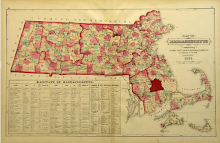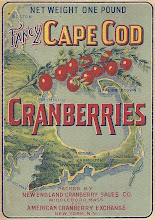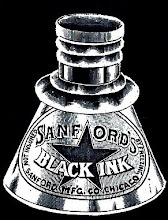
[Excerpt]
Chatellon sur Seine, France
May 13, 1919
Dear Mother:
…On the left side here is a slope and it runs along one-fourth mile all covered with red and white lilacs; some pretty sight. I can smell them, shut my eyes, and see home….
MILLARD E. RAYMOND
Prisoner of War Escort
Company 223
Many Middleborough soldiers recalled their childhoods and the events which had made them special. The advent of Christmas, 1918, prompted Fred Sherman to ask his father in a letter, “Do you remember the times we used to go skating on Christmas?” Writing to friend Fred Pratt in Middleborough, John E. Morrison mentioned thoughts of childhood which sustained him in the face of battle: “I have been over the top four times now and came out pretty lucky, thank God for doing so. Every time I went over I thought of the old dog cart and lots of other good things.” Even the weather, as poor as it was, could conjure these same feelings. “Tonight the wind blows like a good old New England blizzard. At first thought it gives one rather a homesick feeling,” wrote Clifton McCrillis from France on September 28, 1918.
Darragh L. Higgins remembered the Nemasket Grange, while James E. Quigley tired of Army food, missed the local ice cream. “Just think,” he wrote to Lorenzo Wood, “if I could only be in Tripp’s Waiting Room and a nice big plate of ice cream sitting in front of me. I wonder how quickly I could make it disappear.” Ironically, such memories provided greater sustenance to Middleborough soldiers, who desired little more than the small pleasures which they had once taken for granted. Warren F. White simply stated that “it will be a happy day for me when I walk up old Elm street again.”
Throughout the war, local servicemen, but particularly those serving overseas, were sustained by thoughts of Middleborough. Many admissions to this effect were made in response to the activities of the Middleboro Service Committee and other local relief agencies whose members sent letters and parcels to local residents serving in the armed forces. In one typical response to a letter from the Middleboro Service Committee, John B. Bartlett wrote, “I may have bettered myself by being a resident of Texas, but Middleboro is a town one cannot help wanting to call home and this last move only makes it stronger.” Arshag Derderian voiced a similar sentiment when he wrote, “I feel glad and proud of my home town and the folks who do not forget the boys who left behind all their loved ones and their personal interests for the ‘Great Cause.’” Arthur Robinson similarly expressed pride in his home town in a thank you letter to the town Service Committee.
[Excerpt]
Newport News, Va.
Dear Sirs:
I must express my appreciation for your kind thoughts of us boys in service and am sure you will find others feel the same. I must admit that it was a proud moment when I received the letter, telling what you planned, for my captain was with me at the time and I passed it to him and he asked if he might have the letter to send to his Commercial Club at home to show them what was being done in the north (he is from Birmingham, Ala.) and wake them up. You see we get moments when we feel pretty proud of our hometown….
Corp. ARTHUR T. ROBINSON,
Attending Surgeon’s Office,
Newport News, Va.
Melvin Southwick likewise wrote of the attention such letters and packages received from his fellow soldiers, and recognized the support he felt from the home front.
[Excerpt]
Somewhere in France,
Jan. 14, 1918
Kind Friends:
…Believe me when I say that I know there is not another town of any size in this country which is doing a bit more for their boys in the service. I say that from remarks that have been made to me by boys from every state in the Union. I have had it asked me more than once if I had to write for these boxes, and when I have said “of course not,” invariably I have had it asked where my home is; and I have never hesitated in the least to say, “Middleboro, Massachusetts”…
Sincerely yours,
MELVIN L. SOUTHWICK,
U. S. N. Air Station,
U. S. N. Operating Base
During his exploits with the British Army, Earl Dempsey remained proud of his hometown as indicated by a letter which he forwarded to the Middleboro Service Committee.
[Excerpt]
France,
March 5, 1918
Dear Sirs:
…The boys in my section don’t know much about the United States, but they are learning fast. The two principal places now are New York city and Middleboro, and I think it won’t be long before I have them educated up to the idea that Middleboro is the principal town in the U. S. A.
Sincerely yours,
E. F. DEMPSEY,
[11th Battalion, C Co., 11 Sect. Tank Corps, British Expeditionary Force]
Once senses the gratitude and pride implicit in the words Sarkis K. Afarian wrote in July, 1918, “I will write always and keep in touch with my home town.”
Regardless of the sentiments or the reasons, Edward Kraus summed up most Middleborough soldiers’ thoughts when he wrote on December 21, 1917, from France: “I think of Middleboro all the time.”
Illustration:
When news of the Armistice reached Middleborough later in the day on November 11, an impromptu victory parade was held featuring School Street School children marching and waving American, French and Italian flags.






















+of+Smoky+Mountains+018.jpg)
0 comments:
Post a Comment